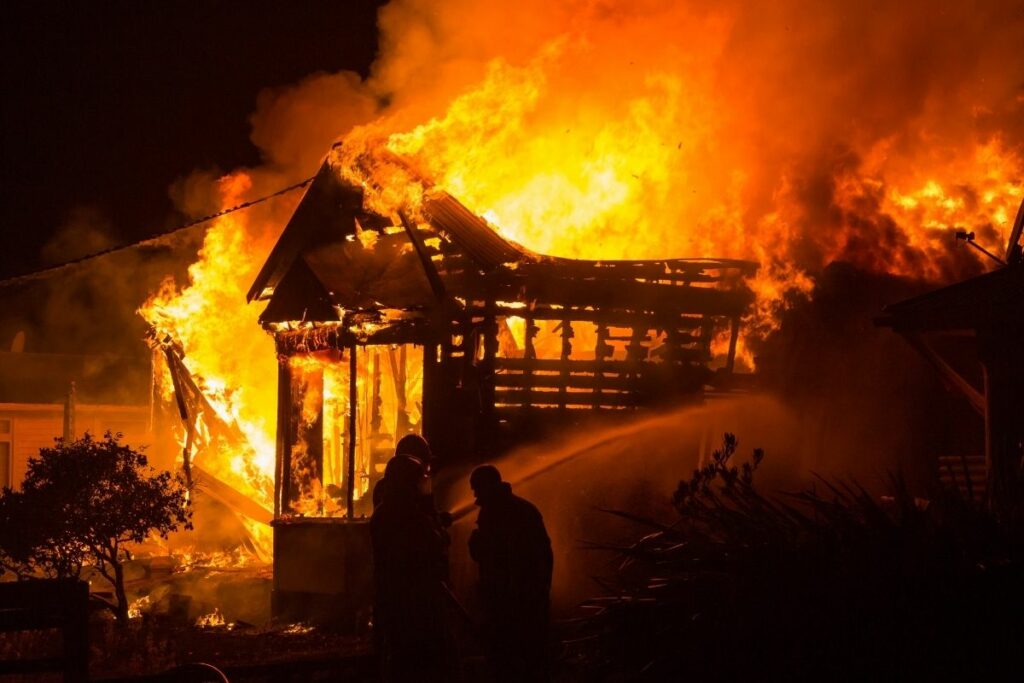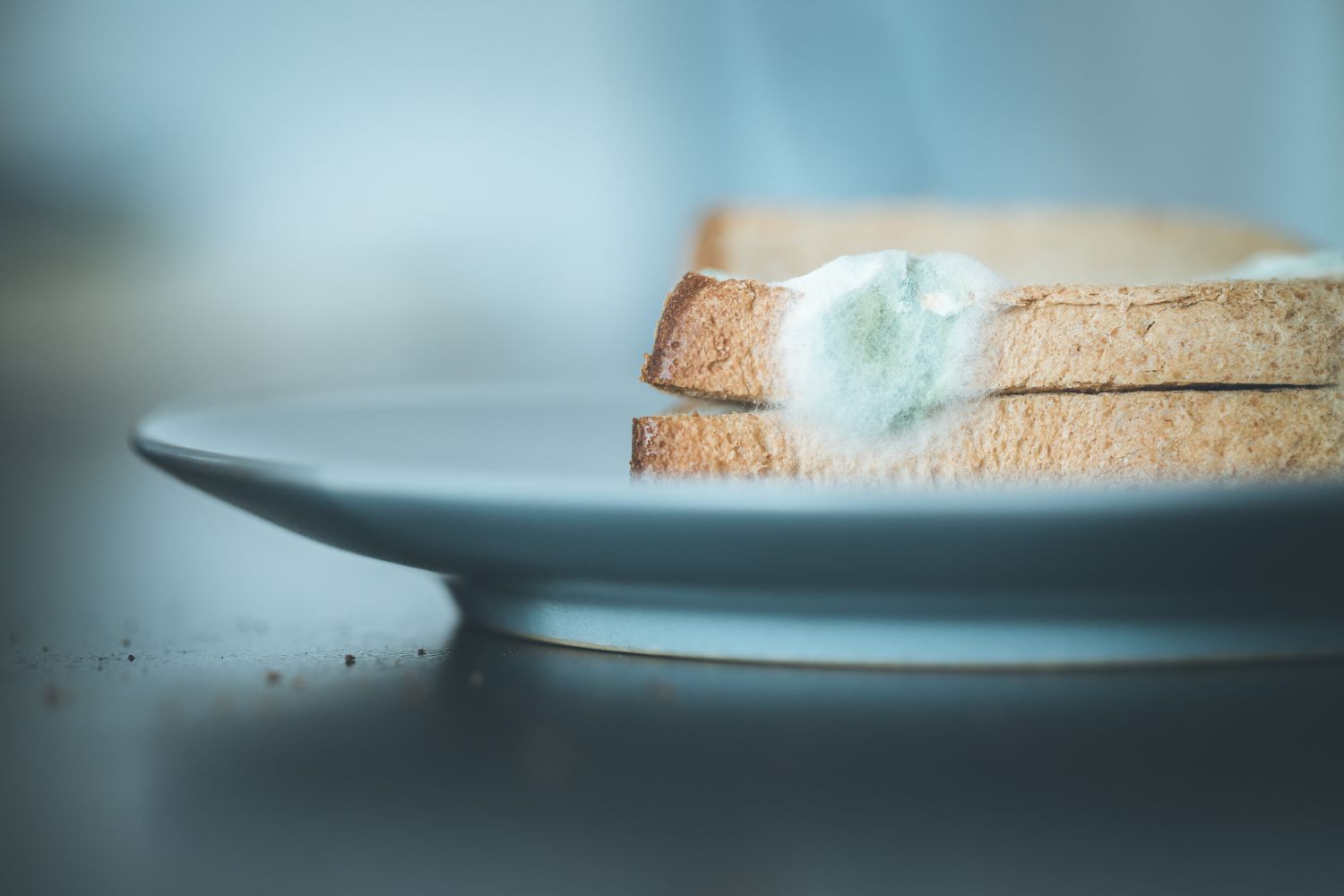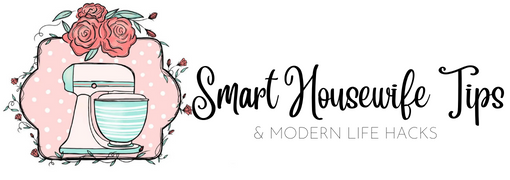We are all afraid of fire, and the very thought that a fire can break out anywhere, including in our household, causes fear. Fires can occur accidentally due to human negligence, and once they start, they will not go out as long as they have material to burn. They spread very quickly and can therefore cause enormous damage, but also take many lives. Annual fires in America cause 2,620 civilian deaths and $ 6.9 billion in direct property damage. To not find yourself in this situation, you need to be careful and know what leads to a fire. So how to prevent fire at home?
To prevent fire at home, test your smoke alarms regularly, never leave the stove or other heating appliances unattended. If you use space heaters, make sure they are far enough away from flammable materials, and the same goes for a fireplace. Also, never leave candles or cigarettes unattended and always be responsible.

We may not be aware of it, but fires happen all the time. In America, annually, firefighters respond to an estimate of 354,400 fires at home per year. Apart from the fact that these fires result in enormous material damage, they can often end in the loss of many lives caused by the fire itself, but also by suffocation. Numerous fires are caused by short circuits, clogged chimneys, or other technical problems, but most fires are caused by human negligence.
Most common fire causes in the home
To prevent fires in our household it is important to know the possible causes of fires, especially the most common ones. As you can guess most fires start in the kitchen. We use very high temperatures during cooking, and if we are careless or leave cooking food unattended, it can easily happen that pot or pans catch fire and cause a fire.
In addition to the kitchen, one of the most common causes of fires in households is heating. Fires are mostly caused by portable heaters that are not used properly or due to a malfunction on them. You must keep portable heaters away from all flammable materials and never leave them unattended. It is also very important to be careful when heating yourself with a fireplace as it is literally an open fire in your home and just one spark is enough to ignite the whole house.
Kitchen appliances can also cause a fire when overheating or short circuits occur in them. Leaving kitchen appliances on electricity can be very dangerous so it is always advisable to unplug the cable when not using appliances. Short circuits also occur due to poor electrical installations in your home, which is why they need to be inspected regularly.
Another very common cause of fire is human negligence. Lighting candles can create a pleasant atmosphere in your home, but it can also cause a fire in a second and lead to disaster. No matter how beautiful and fragrant the candles are, do not leave them unattended and always make sure that they are far enough away from flammable things. If you smoke cigarettes, never do it in the bedroom. In addition to being unhealthy, smoking in the bedroom very often leads to a fire because the person falls asleep or incorrectly extinguishes the cigarette and thus causes a fire.
And of course, there are the children. Children’s curiosity can be a great thing, but not when it comes to causing a fire. Children very often not knowing what they are doing cause a fire. To prevent such events, be sure to educate children about fires and teach them how fires occur and what they are allowed to do and what they are not allowed to do. Also, keep matches and lighters out of the reach of children to keep them safe at all times.
How to prevent fire at home?
1. Test your smoke alarms regularly
To be safe from fire in your home, your smoke alarm must be always functional. Smoke alarms can prevent catastrophic fires at home that often lead to suffocation and the death of the homeowner, but also to the destruction of property that can result in high financial costs. A functional smoke alarm can prevent such disasters and give you time to take action to prevent or extinguish a fire, and if it’s already too late to rescue a property, a smoke alarm will give you plenty of time to leave the house and save your own life.
Smoke alarms work mostly on batteries, so it is necessary to regularly replace the batteries and other parts that wear out over time. It is recommended that you test the smoke alarm at least once a month and replace the batteries once to twice a year. To make it easier to remember when it’s time to change batteries simply change the batteries twice a year on days when the clock moves forward or backward. If you have hardwired smoke detectors, even though you don’t have to change batteries, be sure to check once a month for a smoke alarm to keep your family safe.
2. Inspect all your heating sources
Most household fires occur in the winter months due to the increased use of home heating equipment. Every year check the heating sources by a professional and make sure your air filters are clean. The most common source of fires, however, are space heaters, which are used extensively in the winter months. Although they make our lives easier, space heaters can be very dangerous if not used properly. Make sure that space heaters are always far enough away from anything flammable. Do not place them too close to fabrics, furniture, or other flammable objects.
A fire caused by space heaters can cause dust to collect in space heaters so be sure to clean them regularly. Also, use space heaters only in ventilated spaces, and if you have the option buy models with an automatic shut-off feature. Never leave space heaters unattended and do not place them under your desk or in other enclosed areas. If you smell any suspicious odors, be sure to turn off the space heater and check where the odor is coming from, and it is best to check the space heater by a professional.
3. Never leave the stove on unattended
This advice seems very simple. We teach children from an early age that they must not leave something on the stove unattended, but sometimes we have so many obligations in the day that we simply do not have time to be in the kitchen all the time and keep the stove under supervision. However, if you cannot keep the stove under control, be careful not to overfill pots or pans with oil or grease because oil or grease can splatter and cause a fire. You also always try to be in the kitchen when you cook something for a long time at very high heat. Most important of all, turn off the burner or oven if you need to leave the house!
4. Keep your stove and oven clean
Cooking fires are most often caused by grease or food that catches fire. Apart from faulty cooking equipment, the most common source of fire is just grease buildup on the stove or in the oven. Be sure to clean the grease regularly as a clean stove or ram reduces the possibility of fire. Also make sure your pots are clean when you use them, especially the bottom that you put on the stove. When you spill food, be sure to clean it. To prevent fire also make sure that there are no dishtowels, oven mitts, or paper towels on your stove which can very easily catch fire. When you are done with cooking, wait for hot grease to cool before tossing it into the trashcan. Hot grease can also be flammable so be sure that it is not hot or just pour it into an old food can before you throw it in the trash.
5. Do not leave candles unattended
Candles are literally open fire so you have to be extremely careful when lighting them. Never, but just never leave candles lit when you leave the room or go to bed. To prevent fire, do not use candles in the bedroom as you can easily fall asleep accidentally. In fact, one-third of candle fires start right in the bedroom. Small candles may not seem dangerous, but they do produce a large amount of heat so it’s important to keep them at least 30 inches away from things you can light.
When lighting a candle, place it on a stable surface and ensure that the candle does not fall. Numerous candle holders are quite cheap but do a great job and will keep your candle safe. Do not let the candle burn all the way in but blow it out before it comes close to the holder or container. If you have children do not leave them alone near the candle, and lighters and matches, as well as the candles themselves, store out of the children’s reach. Winter is the time when we light candles the most, so it is very important to do it responsibly and be careful at all times
6. Properly store flammable products
Flammable products will not cause a fire by themselves but in combination with certain conditions, these products can cause dangerous fires. It is best to store flammable liquids such as gasoline, kerosene, and propane in specially designed storage cabinets and rooms. When charging heaters be sure to clean any spills immediately. Also watch out for products such as hairspray, shaving cream, deodorants, and other products that can explode when exposed to a large heat source, so store them in a cool area.
7. Check your cables
Electrical wires and cables can cause enormous damage to your home and endanger the safety of your family. It is very dangerous to have cables on when you are not using objects, especially when it comes to heat-generating appliances. They can very often fail or if you leave them unattended for a long time, they can overheat and catch on fire. To be safe you need to unplug a kettle, toasters, irons, hair straighteners, and other hot appliances when not in use. If you notice that the cord is damaged, never turn on the power cord before repairing it.
Also, be sure to hire an electrician who will check the installations in your household every few years. The wires can wear out or overheat, leading to a short circuit and ultimately a fire. If you notice suspicious signs in your household such as burn marks, burning smells, sparks when you plug in a device, do not wait and be sure to call an electrician who will check your installations.
A special problem during the winter is caused by Christmas lights, which are the most common cause of fires during the Christmas period. Do not leave the lights unattended on your Christmas tree or outside your house as this can easily lead to a short circuit and fire.
8. Check your dryer
Did you know that your dryer can cause a fire? We may never think of dryers as dangerous, but in fact, dryer fires are quite common, and the reason for this is the non-cleaning of our dryers. Some dryers have indicators that will warn you to lint build-up and block the vent, but this is not the case with everyone.
To be safe, after each drying of clothes cleans the lint from the dryer’s lint screen after every load. If you notice that the dryer dries your clothes more slowly it is a sign that there may be a blockage in the dryer vent system. Disconnect your dryer from the power source, disconnect the duct from the dryer, and vacuum both the dryer and the duct to avoid possible fires. Read more about dryer went cleaner here.
9. Be careful with fireplace and chimneys
To be safe in the warm environment of your home you need to clean your chimneys regularly. Before the heating season begins, be sure to hire professionals to clean your chimney and repair it if necessary. Every year when the heating season ends, remove all ashes from the fireplace or woodburning stove. If you forgot to do it then, be sure to remove the ashes before the start of the new heating season. If you are heating on a wood-burning stove, be sure to place the stow in a place where there are no combustible materials, including floors, walls, and ceilings. In a wood stove burn only dry, seasoned wood.
If you are heating on a fireplace be sure to install a spark screen or glass door in front of the fireplace to protect the space from sparks that may fly out of your fireplace. Also, to prevent a fire make sure your fireplace is always clean. Flammable items such as nail polish or stain removers should be kept away from the fireplace because they have flammable fumes that can cause dangerous fires. Never leave a fireplace unattended. If you do not follow what is happening, a chimney or fireplace fire can spread very quickly and thus endanger your home and your family. Before you go to bed or leave the house, first make sure that the fire is completely extinguished, and then you can fall asleep peacefully or enjoy going out.
10. Don’t dry clothes near the fire
It is clear to everyone that clothes will dry faster if you put them by the fire. However, different materials react differently to heat and can be ignited very easily if placed near a fire. The cotton that most garments are made of is highly flammable, as are other fabric materials. To protect against fires caused by drying clothes near the fire. Move your clothes at least one meter away. Do not leave clothes by the fire unattended and be sure to check from time to time that the clothes are not too hot. If it is extremely hot to the touch, move it away from the fire as this is a sign that it is too close. Be careful that a piece of clothing does not cause huge problems in your home.
11. Be careful how you put out cigarettes
A lot of people smoke in an apartment and that’s fine if you ventilate the space and watch where you put out your cigarettes. Many people carelessly put out cigarettes and then empty the ashtray in the trash can, which causes a fire. Also, never smoke in bed, sofas, or armchairs as they are made of easily flammable materials. Also, if you are tired, it can easily happen that you fall asleep with a lit cigarette which will result in a fire.
Be careful to use non-flammable and stable ashtrays to prevent them from tipping over and causing problems. Never leave a cigarette burning when you leave the room or leave the house. Cigarettes may not seem so dangerous to you, but those burn under high temperatures that can easily ignite anything near them.
12. Keep BBQ grills from the house
We all enjoy a juicy barbecue, but a barbecue requires a fire so we have to be very careful when preparing the barbecue. When grilling, be sure to put your frill or fire pit a few feet from your house. Also make sure that the grill is not next to trees, deck railings, or other structures that can easily catch fire. To be safer from fire from the grill, keep the grill clean regularly, make sure there is no rust on it, and if you use gas, always check the gas connections. When you light a fire in your yard for some reason, always have a fire extinguisher or at least water on hand.
13. Educate children
There are matches or a lighter in every household and that’s fine until they get into the hands of the kids. The kids are very curious, but they are also clumsy and don’t know what will happen if they play with matches or a lighter. Innocent children’s play can lead to a fire in just seconds. To avoid an event like this, educate your children on how fireworks and teach them that fire is not a toy. Never leave children near stoves, candles, fireplaces, or other flame-producing objects that may cause a fire. Keep matches and lighters out of the reach of children to avoid the temptation to play with them and prohibit children from using lighters or matches without your permission.
Teach older children that they must always put a match in the water before throwing it in the trash. This way they will be sure that the match is completely extinguished and that there is no danger of fire. Teach them not to play by the fireplace or stoves so as not to catch fire or burn.
Nowadays when we use numerous devices, it is important to teach children not to plug too many devices into a single outlet, whether through the use of extension cords or power strips. You can even teach them that they have to ask you before plugging in a new device to make sure nothing happens.
What to use if a fire happens anyway?
With all the measures we take to prevent a fire, it can always happen that a fire does occur. If a fire breaks out in your home it is important to know how you can put it out and reduce the potential damage. You can put out the fire by using a fire extinguisher, fire blanket, water, salt, or even baking soda.
If you have a smoke detector it will alert you to a fire and give you enough time to try to put it out. If you hear the smoke detector too late and you are surrounded by smoke, do not try to put out the fire but gather your family members and leave the house safely and call the fire department immediately.
On the other hand, if it is a small fire there are several ways you can put out the fire by using the things in your household.
If a fire breaks out you can put it out with a fire extinguisher very quickly. Pull a safety pin located at the top of the fire extinguisher, aim at the fire, then press handles together to release the contents of the fire extinguisher and sweep from side to side until you put out the fire. The fire extinguisher is made in such a way that you can use it in a very short time and thus put out the fire. Do not use a fire extinguisher if the fire has already spread to your house or is spreading and there is a possibility that you will not be able to leave the house. If there is already a large fire protect yourself and your family members and leave the house as soon as possible.
You can also put out small fires with water. Water is always at hand and everything, even if you do not have a fire extinguisher, a large amount of water will successfully prevent the spread of fire and ultimately extinguish it. Water removes heat from the fire, which interrupts the burning process, and is most effective when burning paper, cardboard, wood, or charcoal.
Never use water if the oil is burning, as this could cause an explosion that will injure you and cause a fire in the kitchen elements. The fastest way to extinguish burning oil is to cover the container in which the oil burns with a damp cotton cloth or with the help of a blanket. Also, do not use water if the burning device is live.
You can also put out the fire with a blanket. However, you cannot use any blanket to put out the fire, but thick woolen blankets that will prevent the flow of oxygen to the fuel and thus put out the fire. The blanket is great to apply when it comes to fire on a person so be sure to remember that!
If it is a small fire, pour salt or baking soda over the flame. Salt will smother the fire while baking soda will chemically extinguish it. However, if you are going to use this method you need large amounts of salt or baking soda so it is good to always have one in easily accessible places in your kitchen.
If clothing catches fire on a person or on you, do not run at all, as this will speed up the spread of the fire. Throw yourself on the floor and roll from one side to the other until you extinguish the last sparks on you. In situations like this, it’s hard to think rationally and not run, but remember that the only salvation is to be calm and act rationally.
Source
https://www.bobvila.com/slideshow/11-common-causes-of-house-fires-and-how-to-prevent-them-51360
https://www.realinsurance.com.au/home-insurance/home-safety/the-most-common-causes-of-house-fires
Related posts
-
How Long Does Dry Cleaning Take?

How Long Does Dry Cleaning Take? Many ask how long dry cleaning takes, and the answer can vary depending on various variables. However, it generally takes an average of 8-48 hours for the cleaning process to finish, but this could be further extended in cases where multiple items need to be cleaned on the same…
-
How To Clean Suede Jacket? – A Complete GUIDE

Suede jackets are durable, beautiful, and pleasant to the touch. When it’s cold, they keep warm. When it’s hot, they don’t soar. But suede has one serious drawback: it is not easy to care for it. This material is quite capricious and requires a careful and delicate approach. But if you know the basic rules…
-
What is the easiest way to recognize foods contaminated with spoilage?

What is the easiest way to recognize foods contaminated with spoilage bacteria? These days, every penny counts. You want to eat good, healthy, tasty food. You don’t want to waste leftovers, particularly when they were carefully cooked in the first place. Every working mother, father, or just regular busy person puts food into the cupboard,…



